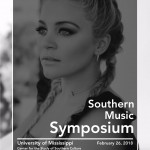
We’re excited to announce our panel of student researchers for the Southern Music Symposium coming up on Monday, February 26.
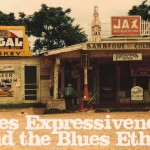
The blues—as a palette of intense, often contradictory feelings; a range of social conditions heavily inflected by blackness and southernness; an expressive form encompassing literature as well as music; and a philosophical orientation towards experience—are a more complex cultural phenomenon than some realize. This essay unpacks the latter two concepts: blues expressiveness and the blues ethos. Blues expressiveness is constituted by a range of cultural practices, including the AAB stanza, call and response procedure, vocalizations, blues-idiomatic language, and signifying. The blues ethos, too, offers multiple strategies for surviving bad times by refusing to reify the down-ness of the present moment as an inescapable condition, sometimes with the help of harsh, redemptive laughter. In this essay, Adam Gussow draws on a range of lyric, literary, and folkloristic commentary by Langston Hughes, Cornell West, Bessie Smith, Howard Odum, Kalamu ya Salaam, W. C. Handy, Angela Y. Davis, Lonnie Johnson, and many others. The essay also takes an autobiographical turn as Gussow mines his own bandstand and classroom experience with Mississippi-born blues performers Sterling “Mr. Satan” Magee and Bill “Howl-N-Madd” Perry to illustrate the blues ethos in action.
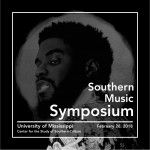
SOUTHERN MUSIC SYMPOSIUM · FEBRUARY 26 CALL FOR PROPOSALS FOR UM STUDENTS We invite University of Mississippi students to submit papers or completed documentary work for public presentation and discussion at the February 26 Symposium. Subjects can concern how southern music has shaped or related to place, race, gender, class, locality, environment, globalization, consumerism, and/or politics. …
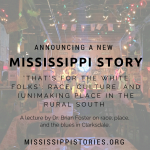
New on Mississippi Stories, a lecture by Assistant Professor of Sociology and Southern Studies Dr. Brian Foster: “‘That’s for the White Folks’: Race, Culture, and (Un)Making Place in the Rural South.” Dr. Foster presented the lecture, based on his ethnographic work in rural Mississippi, on October 25, 2017 as part of the Center’s Brown Bag Lecture Series.
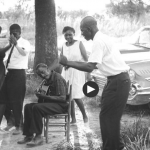
You can now watch the SouthDocs film Shake ‘Em on Down by Joe York and Scott Barretta online through the Reel South initiative. Reel South is the result of a partnership between UNC-TV and SCETV and the Southern Documentary Fund, and highlights the documentaries from around the region, making them available through public broadcasting stations.
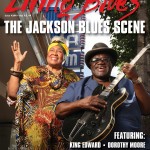
The August/September #244 issue of Living Blues shines a spotlight on the state of the blues in Jackson, Mississippi. Supported by a generous grant from the Jackson Convention and Visitors Bureau, this special edition of LB documents an under-the-radar, yet thriving local scene—one whose influential roots run deep.